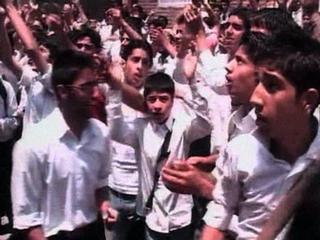20 yrs apart, but streets feel the same
 They belong to different generations and political eras. But Aftab Hilali (43) alias Shahid-ul-Islam and Rouf Muhammad (22) have a lot in common. Besides their love for jeans, sneakers and cricket, both share a grudge over the absence of human rights and freedom of expression in Kashmir.
They belong to different generations and political eras. But Aftab Hilali (43) alias Shahid-ul-Islam and Rouf Muhammad (22) have a lot in common. Besides their love for jeans, sneakers and cricket, both share a grudge over the absence of human rights and freedom of expression in Kashmir.
While Islam participated in the 1989 student uprising for the liberation of Kashmir, Muhammad, known as Missile for his precision in stone throwing, took to the streets in January to protest human rights violations by security forces.
And as in 1989, it has become impossible today to ignore the groundswell of protests by people, especially the youth.
As a college student and a senior member of the Muslim Students Federation, Islam took part in peaceful demonstrations and protests, such as the 1989 rebellion. But disheartened by the way the police treated them, he crossed the LoC in 1990 to learn the use of latest arms and ammunitions, and fight “Indian occupation” of Kashmir.
Islam is now a member of the moderate faction of the Hurriyat Conference, and a close aide of Mirwaiz Umar Farooq.
“We were jailed and tortured. They even maligned us by calling us eve teasers. We had no option but to take to the gun to be heard,” said Islam, who became a militant commander. He carried a reward of Rs 5 lakh till 1996 — when he was arrested.
Now, 14 years later, Islam senses the same degree of unrest and disillusionment, if not more, among the youth, and fears that students such as Muhammad will start a more dangerous militant movement.
Muhammad has been following speeches and activities of hardline separatist leader Syed Ali Shah Geelani since childhood. “He represents us. I have never met him, but he will not sell Kashmir again.”
Kashmiris are being taken for granted, and they don’t want their basic rights taken away, he says. “I think if we galvanise people and hit the streets, we can force the government to meet our demands.”
Experts also paint a grim picture. Rekha Choudhary, a political commentator and a professor at Jammu University, feels there is a lot of frustration at the ground level.
“People want some movement forward, which is not happening. But we must note that since 2007, people are not ready to take anything lying down,” she said.
Drawing parallels between the 1989 and 2009 uprisings, Choudhary says the quantum of anger is the same. But, “in 1989, human rights was not the central issue. At present, it is”.
It is here that Chief Minister Omar Abdullah's efforts at reconciliation can provide a healing touch. He is the first chief minister of the state to speak of revoking the Armed Forces Special Powers Act, which human rights activists blame for much of the excesses committed by security forces.